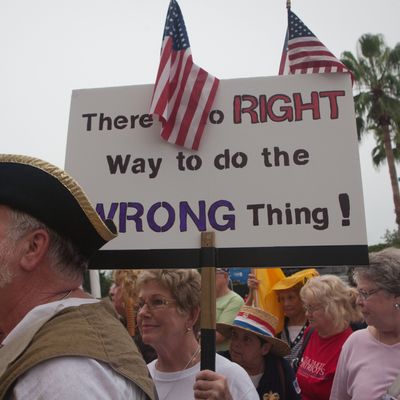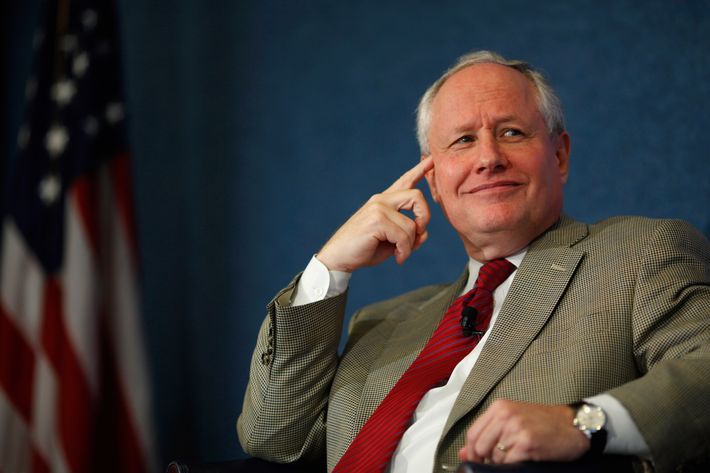
Weekly Standard editor William Kristol has a throwaway line, in the middle of his latest Republican pep-talk column, that underscores one of the oddities of conservative thought in the Obama era. It’s not a profound line — its importance derives precisely from its tossed-off quality, as evidence of the kind of thing conservatives have fallen into the habit of saying without considering what it really means. Kristol writes:
Another four years of contemporary liberalism in power would leave conservatives able only to mutter a sad “so long” to limited government, to wave goodbye to the original Constitution, and to say a fond farewell to American greatness.
The “original Constitution”? The one that permitted slavery? Does Kristol want to do away with the 11th through 27th amendments to the Constitution?
I’m sure he does not. But if Kristol obviously does not mean what he actually wrote, what does he mean?

The notion that Obama has violated “the Constitution” has become a right-wing shorthand to express conservative anxiety. Following their triumphant capture of the House of Representatives in 2011, Republicans promised to cite the Constitution in every bill they introduced and made a display of reading the Constitution aloud on the floor of the House. Charles Krauthammer, in a 2011 column, celebrated the new “constitutionalism” as a basis for right-wing thought:
Constitutionalism as a political philosophy represents a reformed, self-regulating conservatism that bases its call for minimalist government - for reining in the willfulness of presidents and legislatures - in the words and meaning of the Constitution.
When Krauthammer invokes “the words and meaning of the Constitution,” he means roughly the opposite of that. The Constitution is not a vague set of ideals; it’s a clear set of rules. That’s the whole point of a Constitution. The Constitution says Obama can’t cancel the next presidential election or enact a treaty without Senate approval or quarter troops in Bill Kristol’s house (though he’d probably like it). If the Constitution were designed to prevent federal outlays from rising above 20 percent of gross domestic product, it would say that. And if Obama were violating the Constitution, Republicans could bring a legal case to the (Republican-controlled) Supreme Court.
The notion that the Democratic Party’s domestic-policy agenda violates the Constitution is not intended as a literal claim. By “the Constitution,” conservatives don’t mean “the Constitution” but, perhaps, penumbras formed by emanations of the Constitution, or maybe the parts of the Constitution they’re certain the Founders intended but probably forgot to write down.
The “original Constitution” is Kristol’s irritable mental gesture in the direction of this sentiment. He has enough awareness to grasp that he can’t quite accuse liberals of destroying the Constitution, so he modifies it in a way that seems to clarify the meaning but actually exposes its absurdity. Which newer parts of the Constitution would he remove?






























